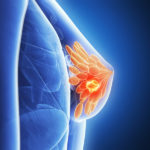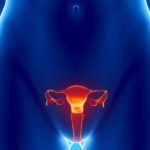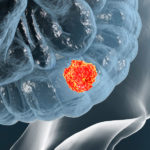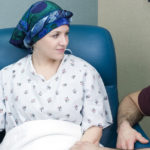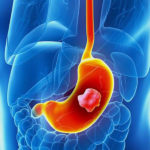 Wróć do poprzedniej strony
Wróć do poprzedniej strony
Breast cancer – symptoms, causes, treatment, diagnosis
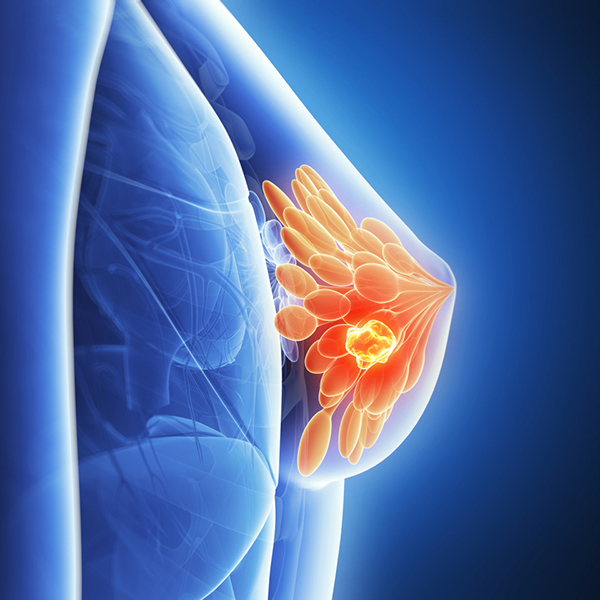
Breast cancer arises from the abnormal proliferation of cells originating in the mammary gland. Over the past three decades, there has been a more than 2-fold increase in cancer incidence among women in Poland. Currently, cancer accounts for about 20% of all malignancies. Breast cancer in Poland has an incidence rate about 35% lower than in European Union countries. Still, each year, more than 5000 women die from the disease.
Breast cancer - treatment
Integrative Oncology Care
At IMC, you will benefit from Integrative Oncology Care designed to speed up physical and emotional recovery, improve quality of life, better tolerate treatment-related side effects and prevent relapse.
An integrative program for cancer treatment can be applied to start from the initial to the advanced stages of cancer, even during the phases when conventional medicine has nothing more to offer. The first step of the integrative approach is a precise and detailed assessment of the patient’s physical, emotional, and body state. The doctor collects the results of biochemical tests, molecular tests, clinical examinations, information about other illnesses, lifestyle, diet, and emotional state. Since the patient’s biological state changes during therapy, the treatment program is updated according to the laboratory and clinical tests. Every aspect of the treatment program is personalized to suit each patient’s individual needs.
Treatment includes:
- integrative medical consultation and monitoring,
- ten sessions of local hyperthermia,
- ozone therapy (autochem transfusions),
- intravenous vitamin infusions,
- ultrasound,
- laboratory tests,
- psychotherapy,
- group workshops such as mindfulness, breathing,
- personalized nutrition,
- and accommodation.
Contact us:
1. Call us: +48 730 597 597
2. Send application form
- Go to Natural cancer treatment
- At the bottom of the page, select your disease
- Complete the form, and we will contact you
Breast cancer can be treated in several ways described below:
- Surgery. Depending on the size and nature of the lesion, the surgeon may perform the following:
- lumpectomy – a sparing excision of a small-sized lesion,
- mastectomy – excision of the entire mammary gland,
- removal of lymph nodes (sentinel, axillary),
- double mastectomy – a procedure involving bilateral removal of the mammary gland, performed when there is a high risk of developing a second breast tumor.
- Chemotherapy. Is often used after surgery to reduce the risk of recurrence. For inoperable lesions, chemotherapy aims to reduce the tumor size to make surgery possible. When the lesions are disseminated and involve distant organs and tissues, chemotherapy often allows control of disease progression. Depending on the pharmacological agents, side effects such as hair loss, nausea, vomiting, weakness, and fatigue may occur. Rarer ones include the early development of menopause, nephropathy, or neuropathy.
- Radiation therapy. Radiation therapy uses ionizing radiation to induce cell necrosis (death). Radiation therapy is often performed after the surgical removal of mammary gland lesions to reduce the risk of recurrence.
- Hormone therapy. Drug therapy is used in cases of hormone-sensitive cancers. When histopathological examination reveals the presence of corresponding receptors (estrogen or progesterone) in the cancer cells, the doctor may use this form of treatment. Hormone therapy reduces the recurrence risk and often treats disseminated tumor processes.
- Targeted therapies. They use characteristic features of cancer cells (such as the presence of specific receptors) to treat them. Such drugs include Herceptin, Perjeta, and Avastin.
- Local hyperthermia. Numerous scientific studies have shown that using local hyperthermia in combination with standard treatment results in significantly higher efficacy. Preoperative use of hyperthermia makes removing the lesion for initially unresectable tumors possible. It reduces the risk of recurrence. In addition, chemotherapy and radiotherapy in combination with hyperthermia can be much more effective than using these therapies alone.
Breast cancer - symptoms
Breast cancer shows symptoms such as:
- a thickening or lump that is different from the surrounding tissue
- bloody, darkly colored discharge from the nipple
- change in the size or shape of the breast
- skin changes within the breast, such as redness, unevenness of the surface
- concave nipple
- peeling of the nipple or breast skin
If you notice a thickening, lump, or other changes in the breast, you should see a doctor.
Breast cancer - causes, risk factors
The cause by which breast cancer arises is not clear. Most often, the tumor arises from the uncontrolled division of cells of the milk duct (ductal carcinoma) or lobular cells (lobular carcinoma).
Research indicates that certain factors increase the risk of developing breast cancer. It is still unknown why certain people develop this cancer despite having no risk factors. A complex interaction of genetic and environmental factors probably causes it.
Only 5-10% of cancers are estimated to be associated with inherited genetic mutations. Many genes that increase the risk of the disease have been identified. Among the most common are BRCA1 and BRCA2 (breast cancer genes 1 and 2), which increase the risk of breast and ovarian cancer.
Risk factors include:
- Female gender. Women are more likely to develop these than men.
- Age. As age increases, the risk of developing breast cancer increases. Women between 50 and 69 are most likely to get the disease.
- Medical history. Individuals with a history of cancer are more likely to develop the disease again.
- Family history. If there is a family history (mother, sister, daughter) of breast cancer, especially at a young age, the risk of developing the disease increases. However, most breast cancer patients do not have a family history.
- Genetics. Specific genetic mutations that predispose to the development of cancer can be inherited. The most common genetic mutations are BRCA1 and BRCA2. These genes increase the incidence risk, although many people with this mutation do not develop breast cancer.
- Obesity. Excessive weight increases the risk of the disease.
- Early menstruation. Women who began menstruating before 12 are at greater risk of developing the disease.
- Late menopause. Women who begin menopause at a late age are at higher risk for breast cancer.
- Childlessness. Women who have never been pregnant are more likely to develop cancer than women who have had one or more pregnancies.
- Drugs. Alcohol consumption and smoking increase the risk of developing cancer.
Breast cancer - diagnosis, detection of the disease
Appropriate diagnostic procedures can detect breast cancer:
- Examination. The doctor performs a palpation examination to determine the presence and nature of changes in the tissue of the mammary gland (nodules, thickening).
- Mammography. X-rays, an accurate image of the breast gland tissue is obtained. A highly effective screening method allows one to visualize small changes that are not palpable during palpation.
- ULTRASOUND. Ultrasound is safer than mammography because it does not use harmful X-rays. Waves, an image is obtained to determine the location and nature of the lesion (solid lesion or cyst).
- Biopsy. The test involves taking a section of pathological tissue subjected to histopathological evaluation. Biopsy makes it possible to determine the characteristics of the proliferation, prognosis, and selection of appropriate therapy.
- MRI. The least frequently used in the diagnosis of cancer.
Breast cancer – staging
Clinical staging of cancer (I-IV scale) allows the selection of appropriate therapy and determines the patient’s prognosis. Depending on the stage of the disease, the doctor decides on the treatment strategy.
Contact information
55-010 Żerniki Wrocławskie
Working hours
Have a question?
Use the quick contact form!
Contact information
55-010 Żerniki Wrocławskie
